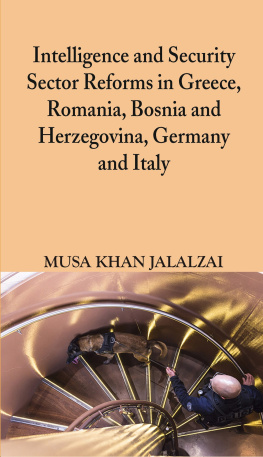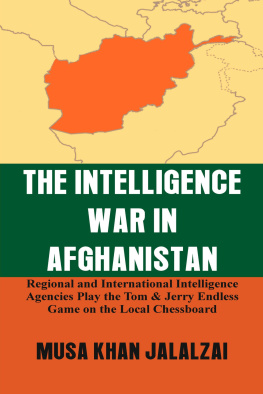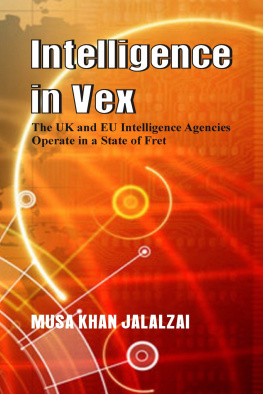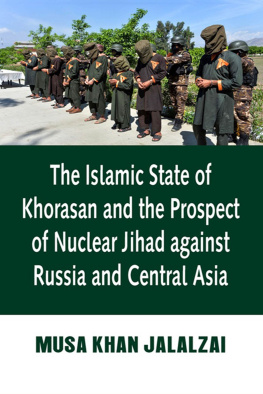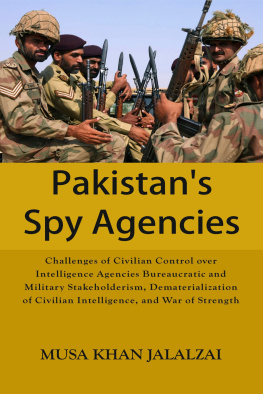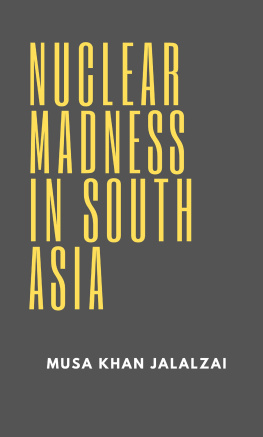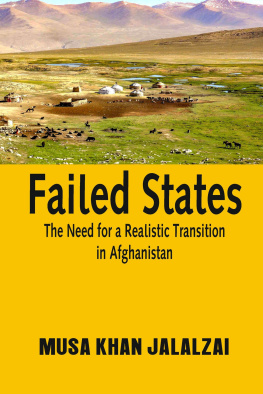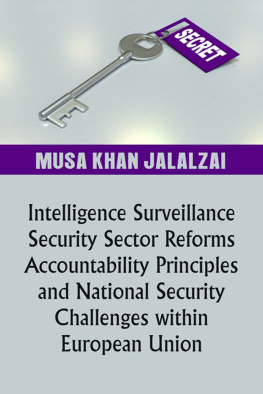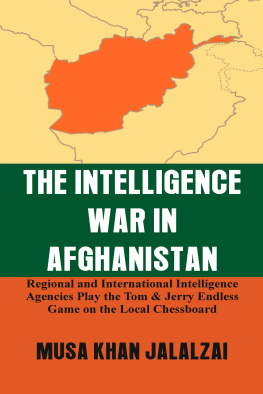Published by
Vij Books India Pvt Ltd
(Publishers, Distributors & Importers)
2/19, Ansari Road
Delhi 110 002
Phones: 91-11-43596460, 91-11-47340674
Mobile: 98110-94883
e-mail:
web: www.vijbooks.com
Copyright 2020, Author
ISBN: 978-93-89620-89-4 (Hardback)
ISBN: 978-93-89620-91-7 (ebook)
All rights reserved.
No part of this book may be reproduced, stored in a retrieval system,
transmitted or utilised in any form or by any means, electronic,
mechanical, photocopying, recording or otherwise, without the prior
permission of the copyright owner. Application for such permission
should be addressed to the publisher.
The Russian interference story in the UK has been a dominant factor in the countrys political and intellectual discussion since the poisonous death of Alexander Litvinenko, a former officer of the Russian Federal Security Service (FSB) and KGB, in November 2006. On 4 March 2018, Sergei Skripal, a former Russian military officer and his daughter, Yulia Skripal, were poisoned in the city of Salisbury with a Novichok nerve agent. On 12 March 2018, the UK accused Russia of attempted murder and announced a series of measures against Russia, including the expulsion of diplomats. The UKs official assessment of the incident was supported by 27 EU member countries including the US, Canada, and Australia. In August 2020, Russian opposition politician Alexei Navalny was poisoned with a Novichok nerve agent, a German newspaper reported. German Chancellor Angela Merkel said he was a victim of attempted murder and the world would look to Russia for answers.
The UK Intelligence and Security Committee reported Russian interference in the country. Speaking ahead of an urgent question in parliament, the Shadow Home Secretary, Nick Thomas Symonds, said: on every level, the governments response does not appear to be equal to the threat. This report outlined the scale of the shortcomings of the governments response to maintaining the countrys national security in the face of what was clearly a growing and significant threat from Russia, he said. However, Director-General of MI5 told the committee: ....there are things that compellingly we must investigate, everybody would expect us to address, where there isnt actually an obvious criminal offence because of the changing shape of the threat and that for me is fundamentally where this doesnt make sense. In evidence to the committee, the Home Secretary accepted that the Official Secrets Acts were completely out of date. Director-General of MI5 told Parliamentary Committee: The purpose of [a potential new Espionage Act] is to be able to tighten up on the powers that have become, you know, dusty and largely ineffective since the days of the Official Secrets Act, half of which was drafted for First World War days and was about sketches of naval dockyards, etc., and then there was a 1989 addition to it, but we are left with something which makes it very hard these days to deal with some of the situations we are talking about today in the realm of the economic sphere, cyber, things that could be, you know, more to do with influence.
The 55-pages report which was released after 9-months revealed that Russian spy agencies have been involved in illegal business in the UK-targeting Mr. Putins critics. The committee noted: Defending the U.K.s democratic processes and discourse has appeared to be something of a hot potato, the report said. In her well-established analysis in Foreign Police, Amy Mackinnon (21 July 2020) highlighted 4 key takeaways from the Russian interference report:
The 47-page, highly readable report, which has been shelved for over a year, offers a damning assessment of the U.K. governments failure to examine Russian attempts to influence the course of the Brexit vote and describes Russian interference in the country as the new normal. There has been no assessment of Russian interference in the EU referendum, and this goes back to nobody wanting to touch this issue with a 10-foot pole, said committee member Stewart Hosie of the Scottish National Party during a press conference, raising questions about the British governments efforts to protect the integrity of its elections. While Russia has long honed its hacking and disinformation skills on neighboring countries in Eastern Europe, the report notes that Russias efforts to sway voters in Scotland ahead of the 2014 independence referendum marked the first known attempt to interfere in the democratic processes of a Western country. Rachel Ellehuus, the deputy director of the Europe program at the Center for Strategic and International Studies, said it was surprising that as far back as 2014, knowing the objectives and the tactics of the Russians, they did not take more decisive steps. It was only after Russian operatives hacked and leaked internal emails from U.S. Democrats during the 2016 election that the Government belatedly realised the level of threat which Russia could pose in this area, the report states, a realization that came one month after the Brexit vote. If an assessment had been conducted before the Brexit referendum, the report adds, it is inconceivable that they would not have reached the same conclusion as to Russian intent, which might then have led them to take action to protect the process. The report makes it clear that the physical process of voting in the United Kingdom is largely secure due to the continued use of paper ballots. But questions of what Russia may have done to try to influence the Brexit vote, and how effective its efforts were, remain unansweredand most importantly, have not been examined by the British government, according to the report.
The ISC report called for simplification of the plethora of plans and strategies and unnecessarily complicated wiring diagrams of Russia policy. Security Committee of Parliament Report on Russia admitted the UK Government efforts to effectively counter Russian spy networks: The Government has long recognised there is an enduring and significant threat posed by Russia to the UK and its allies, including conventional military capabilities, disinformation, illicit finance, influence operations, and cyberattacks. As such, Russia remains a top national security priority for the Government. This is why in 2017, the Government implemented the NSC-endorsed Russia Strategy, and established the cross-Government-Russia-Unit which brings together the UKs diplomatic, intelligence and military capabilities to maximum effect. The Governments Russia Strategy does not just respond to the here and now; it is a 30-year strategy, designed in the long-term to move from a relationship of confrontation and challenge, which currently threatens our collective security and values, to a relationship where Russia chooses to work alongside the international community.
The Telegraph newspaper on 22 July 2020 reported political and opposition leaderships standpoint on Russian interference in the UK: The Security services are set to be given extra powers to try to prevent foreign interference in British democracy following a damning report from MPs on the potential threat posed by Russia. It is understood Prime Minister Boris Johnson will strengthen counter-espionage laws in the wake of the bombshell study by the Commons Intelligence and Security Committee (ISC). The move comes with Labour poised to go on the offensive on the issue of Parliaments final sitting day before the summer recess. Labour has accused the Government of failing in its response to the security threat posed to UK democracy by Russia after the long-delayed ISC report insisted London was too slow to recognise Moscows menace to British democratic processes.


